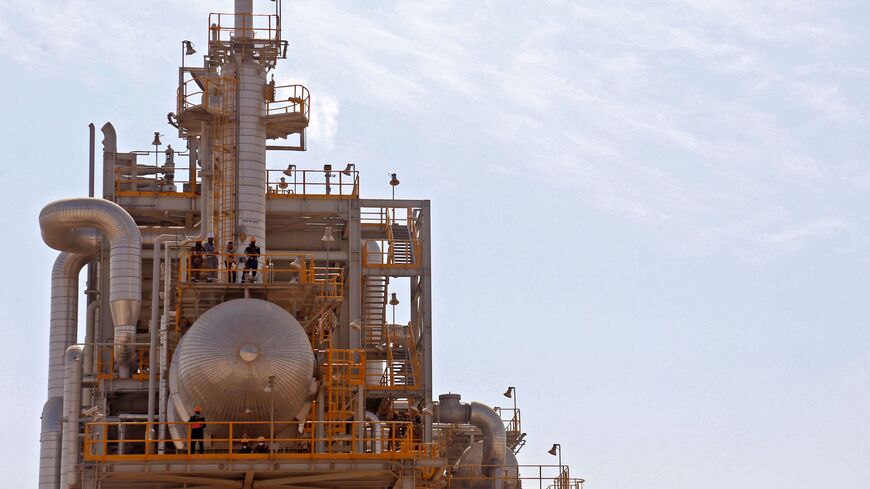Iraq reopened a major oil refinery in the north on Friday as the country recovers from the war with the Islamic State and Baghdad seeks to increase oil production.
Prime Minister Mohammed Shia al-Sudani inaugurated the North Oil Refinery in Baiji following rehabilitation of the site, his office said in a statement published by the official Iraqi News Agency.
رئيس مجلس الوزراء السيد محمد شياع السوداني: يعود مصفى بيجي ليكون شاهداً شاخصاً على إرادة الشعب العراقي وعزيمته وإصراره.#عام_الانجازات pic.twitter.com/Eaa1iswfu3
— المكتب الإعلامي لرئيس الوزراء 🇮🇶 (@IraqiPMO) February 23, 2024
The Baiji refinery has a troubled history. ISIS militants captured the site in 2014 during the group's sweep across Iraq. Control of it changed hands several times and the facility was the scene of heavy fighting before being retaken by Iraqi government forces in 2015. The site was severely damaged during the battles and required significant repairs, the New York Times reported that year.
“We stand in honor and respect for the martyrs and the wounded who defended this land and liberated the refinery from Daesh,” said Sudani at the ceremony, using the Arabic-language acronym for ISIS.
ISIS was territorially defeated in 2017 by Iraqi forces and a US-led international coalition. The group has carried out smaller-scale attacks since then.
Why it matters: The reopening of the Baiji refinery comes as Iraq is seeking to boost oil production. Bloomberg reported in late 2022 that Iraq planned to add 1-1.5 million barrels per day to its export capacity by 2025.
Iraq’s crude oil production amounted to 4.3 million bpd during the first half of 2023, according to the US Energy Information Administration.
Oilprice.com reported in July that the Iraqi Parliament’s oil and gas committee plans to boost overall production to more than 5 million bpd. However, widespread corruption has inhibited oil production growth in Iraq, according to the report.
The Baiji refinery could play a significant role in Iraq’s oil plans. The refinery, Iraq’s largest, was responsible for a third of overall oil production when it was taken by ISIS, according to reports from the time. The refinery has a current capacity of 250,000 bpd, according to Agence France-Presse.
Baghdad hopes the refinery will help reduce Iraq's need for fuel imports. Though Iraq has the fifth-largest crude oil reserves in the world, it imports some fuel products as its refining capacity does not entirely meet domestic needs, per the Energy Information Administration.
Sudani said at the ceremony that the refinery would move Iraq closer to ending fuel imports, AFP reported.
Iraq’s production plans involve China as well. The People’s Republic is the largest buyer of Iraqi crude and Chinese companies currently manage two-thirds of Iraq’s oil production. Diminished interest by Western companies in Iraqi energy investment has paved the way for Chinese companies to dominate the field, S&P Global reported earlier this month.
Iraq remains politically volatile, most recently due to violence between Iran-backed militias and US forces in the country.
Infrastructure issues and Turkey’s continued ban on oil imports from Iraq are also hindering production, according to S&P Global. Turkey stopped oil flows from Iraq last year due to a legal dispute over exports from the autonomous Kurdistan Region.
Know more: Iraq is the second-largest oil producer in the Organization of the Petroleum Exporting Countries. Its plans to boost oil production come as OPEC+ maintains its oil production cuts from 2022. The alliance, which includes Russia and other oil producers in addition to OPEC members, cut production in an effort to prop up prices.
Iraq has been in disagreement with OPEC+ on production, as it failed to cut production in line with OPEC+ targets in January. Iraq subsequently promised to review its production figures for any excess, Bloomberg reported this month.



